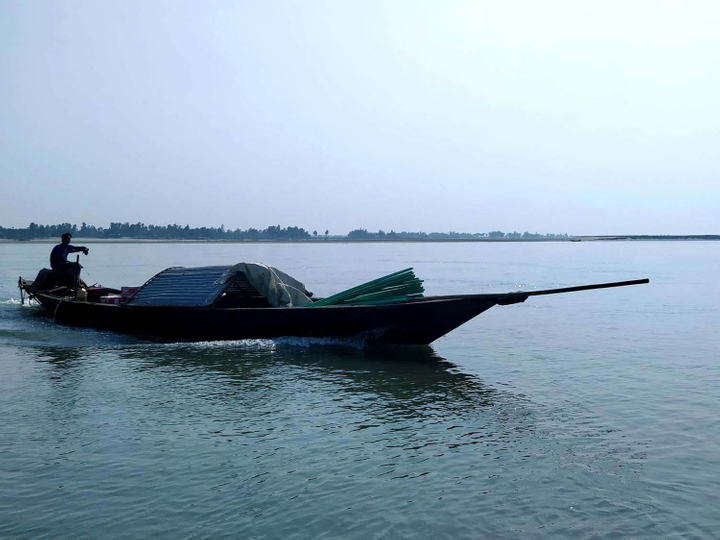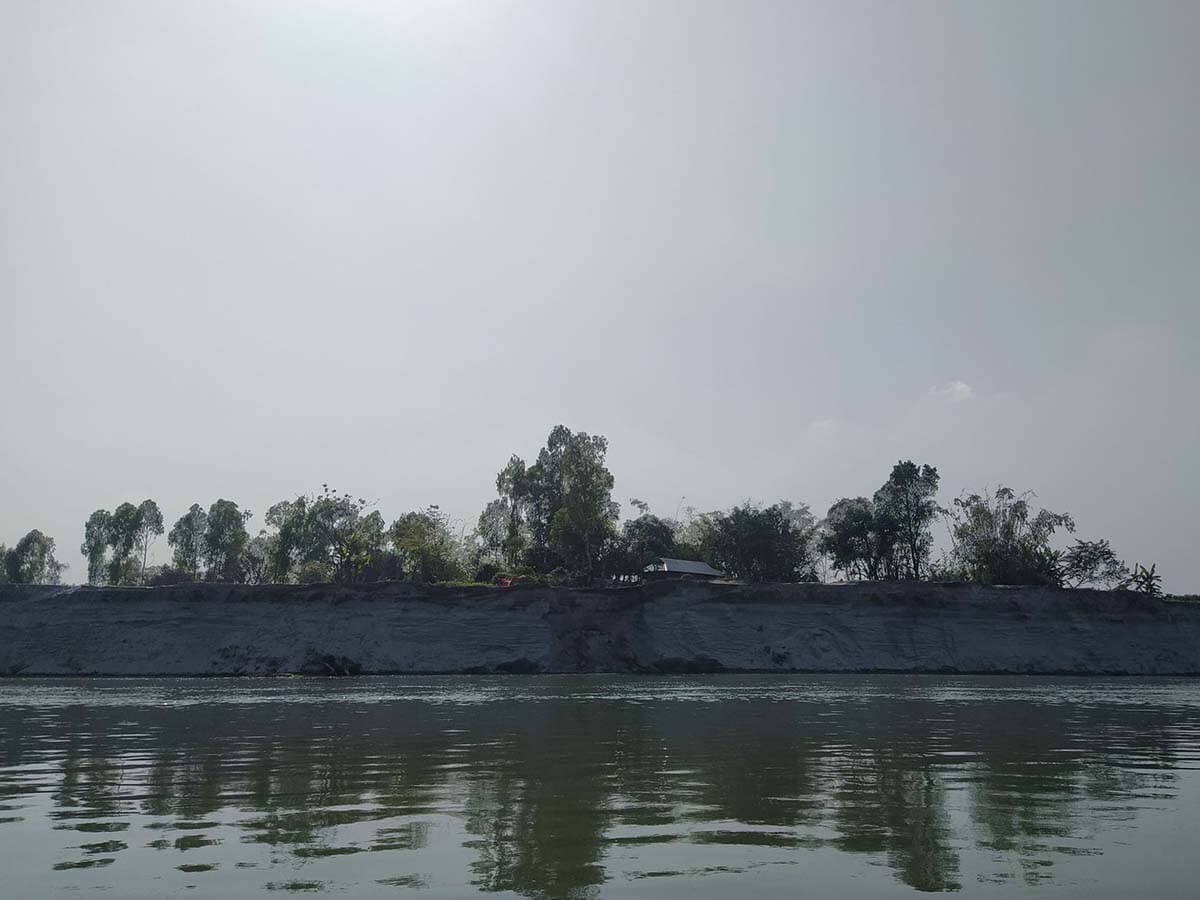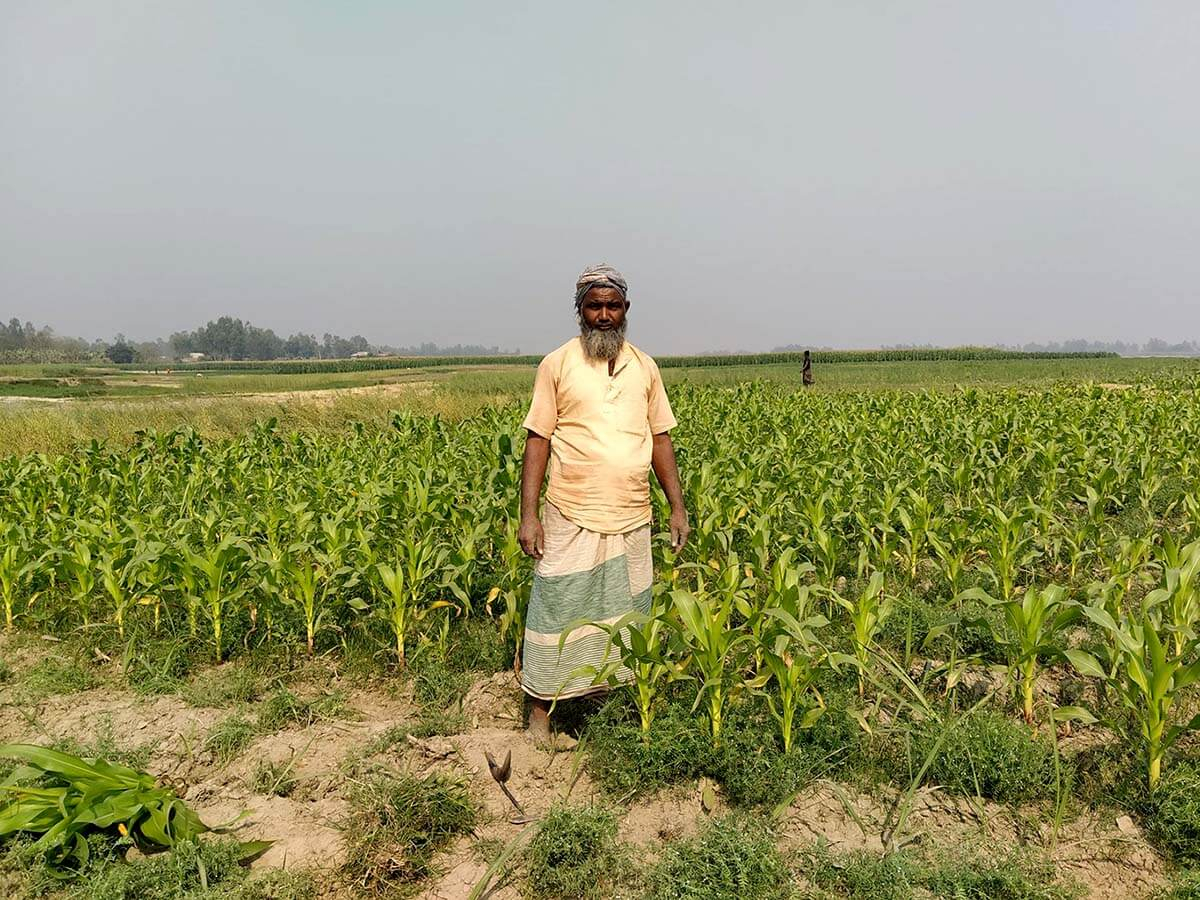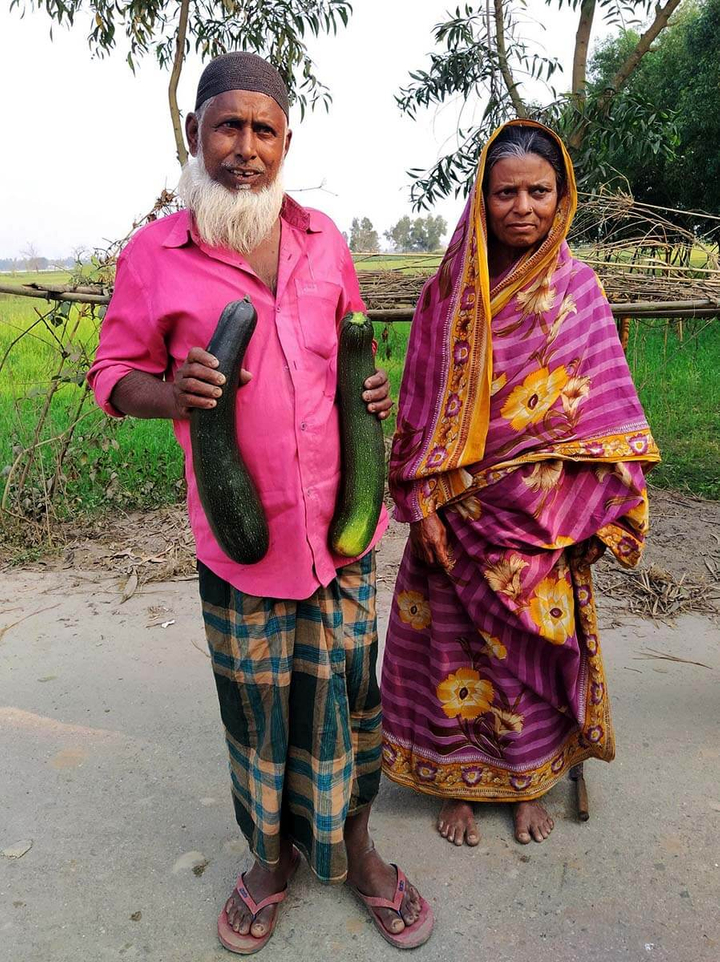A tale of river basin people in north central region of Bangladesh. How do they deal with water and climate challenges?
"How far are the ferry boats?"
"Not too far. Just follow the others to get there."
I followed the direction from Balashighat, a familiar place for river transportation in Gaibandha, a northern district of Bangladesh. It was around two hours' journey, starting with walking through sandbars, wading through canals, and finally, by a one-horse driven pushcart to the anchored mechanized country boats to reach the east side of the Brahmaputra river.

In early February, the river seemed to be smaller and quieter, but we could see how this transboundary mighty river and its tributaries shape the lives of the people living along its basin by flooding and devouring land in the rainy season.
The boat moved through the creeks towards Islampur Upazila (sub-district), my destination in Jamalpur district in north-central Bangladesh. The weather was a little hot. Strong winds blowing sand were forcing us to cover our faces with our hands. Boats of different shapes and sizes, with passengers, goods and fish catches, were passing us. Some people were bathing in the cold, fresh water.
The maize and paddy fields along the river were eye-soothing. And sometimes, the signs of land erosion by the river were very upsetting. Our boat reached the river mouth where the Brahmaputra joins River Jamuna.
Our boat reached our destination and I managed to get a ride on a three-wheel "easy" bike with other passengers to the Upazila headquarters. The bumpy road and water marks on houses along the way were enough to understand the consequence of last year's floods. Our driver was explaining the situation: "This road and the houses in the neighbourhood had gone under at least five feet of water. The road is yet to be repaired."

Islampur, on the bank of Jamuna in the south and Old Brahmaputra in the north, is famous for vegetable cultivation — especially brinjal, sugarcane and molasses, and bronze cottage industries. As far as I could see, the fields were filled with maize, mustard, jute, chili, sugarcane, wheat, "boro" paddy, and other winter vegetables. The roaring of water-pumps in the fields were quite audible.
I met several farmers and people of other professions at Uttar Sirajabad village in Palbandha union in the northern part of Islampur Upazila. The village is very close to the Old Brahmaputra (a tributary of Brahmaputra) and every year, it gets flooded. Among the villagers, many had settled down here after losing their lands to river erosion. The number of differently abled people in the village surprised me.
I was told that river erosion is very much responsible for damaging the mental health of its victims. Such disasters are also linked to loss and damages of assets, gender-based violence, poor water and sanitation systems, and disruption of education, especially for girls. Despite these challenges, the villagers try to regain their livelihoods and restore basic facilities with their sincere efforts and traditional as well as new knowledge.
According to agriculturists and local people, flooding is a natural phenomenon in this region and helps to enrich the land with sedimentation. But when floods exceed the natural duration, the rotational period for the next crops is severely affected. Groundwater depletion in the dry season is another concern for the farmers.

I came across a farmer who was pulling out young maize plants from his field and I asked him the reason. "I don't have irrigation facilities and I will incur losses of around Taka 30,000 (USD355) from this field. Had I cultivated mustard, then I could have benefitted since it consumes less water and can be harvested earlier," he explained. Farmers in Uttar Sirajabad always experiment with new crops, learning from their neighbours, officials of the Department of Agriculture Extension (DAE), field workers of nongovernmental organisations, and seed and fertilizer companies.
Farmer Abdur Rahim of the village has been cultivating vegetables such as squash alongside his main crop for the past two years. Is this cultivation profitable? Rahim, aged 55, replied: "I am experimenting with it and getting good response. I have a plan to increase squash cultivation next year."

The situation in Kholabari village of Chikajani union in Dewanganj Upazila, another disaster-prone area along the Jamuna river in Jamalpur district, is not much different from Uttar Sirajabad village. A portion of Kholabari has been washed away by last year's flood. The makeshift houses on the roadside are reminders of the havoc caused by the flood. River erosion in places has eaten away the road.
The area is known for chili, mustard, maize, and dairy produce. The height and healthy growth of maize plants were good indications of fertile lands along the river. The villagers were busy harvesting mustard and nurturing maize and boro plants. It was very interesting to learn that the people of this union have multiple livelihoods, be it farming or non-farming.
Nahid Nehar Sultana Soma, executive director of Layla Mohila Kollan Somiti, a local civil society organization of Islampur, reflected on the natural disasters and the resilience of the community: "Flood, river erosion, and groundwater depletion are the three major disasters in this region. We courageously face these disasters, but good coordination among the authorities concerned and the stakeholders is a must for a better prepared and resilient community."





